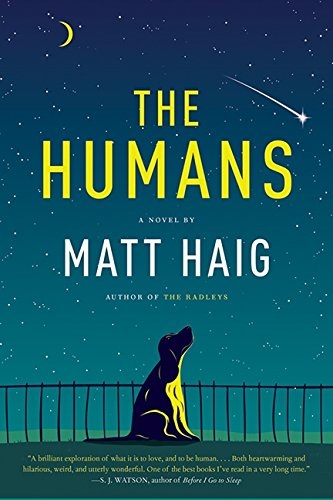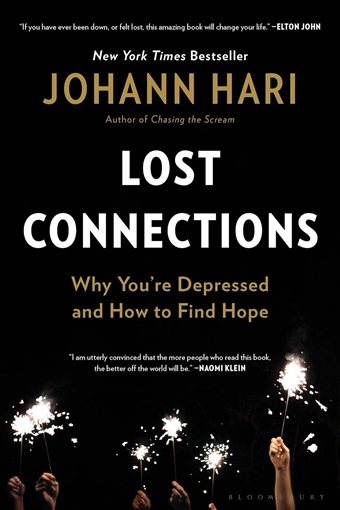
Ken Shigematsu was always warmly received by his mother-in-law.
In late December of 2023 our family was visiting my wife Sakiko’s family at their home in Osaka, Japan. My mother-in-law took us out to dinner at one of her favourite restaurants – Pusan, a Korean restaurant. We all had a wonderful time together. My mother-in-law was 83 years old and, other than having some dementia, was in good health.
Later that night, while she was sleeping, she suffered a fatal heart attack.
When we discovered, in the early morning, that she had died, it was a great shock to us and we were filled with deep grief and sadness.
At her memorial service in Osaka, I recounted my first experience with her. Sakiko and I had just started dating and we took a bullet train from Tokyo to Osaka to meet her mother.
I was nervous about meeting her. I grew up in the Vancouver suburb of Surrey. We were a modest immigrant family. But Sakiko came from a higher-class family and I knew that those distinctions mattered in Japan. I was anxious as to whether or not I would be accepted.
I recall Sakiko’s mother pulling up near the train station to pick us up in her white BMW and my slipping into the back seat. She looked elegant and was wearing white gloves. She looked into the rearview mirror at me with sparkling eyes, radiating warmth and love. In those two or three seconds I felt an immense sense of relief and gratitude, sensing that I was accepted and insofar as possible in a very brief moment of time, loved.
Across the years, I always felt warmly received, loved and honoured by her. In the wake of her death, I felt profound sadness and loss.
On a Friday around the year 33, Jesus was crucified on a Roman cross and almost all his original disciples fled in fear for their lives and went into hiding. These students of Jesus had felt deeply seen, known and loved by Jesus in a way that far surpassed anything they had ever experienced. And they would have felt a profound sense of loss and grief when Jesus was crucified.
They had also believed that Jesus was the long-awaited Messiah, the God-anointed saviour figure of their people and the world who the prophets had prophesied would one day come. The anointed one who would open a door for God’s peace and justice to enter people’s lives and the world as had never happened before.
But with Jesus’ crucifixion, his disciples would have felt deep anguish and despair as they assumed that they had been following the wrong guy.
In the first century there were about 10 people who claimed to be the Messiah, the saviour figure who God had sent to liberate the Jewish people from the oppression of the Roman Empire. What happened to all those messiah candidates? After gaining some level of popular following, each of them ended up being arrested by the Roman authorities and killed by the government or a rival faction.
After Jesus’ death on the cross was confirmed, he was wrapped in about 100 pounds of linen cloths and spices and placed in a cave that acted as a tomb. A large stone, likely weighing between one and two tons, was rolled across its entrance. A Roman guard of about 16 soldiers was placed in front of the entrance of the tomb to guard it. On the third day, on that first Sunday morning after he was crucified, according to the Gospels, Jesus rose from the dead and appeared to Mary Magdalene and Mary the mother of James.
The low social status of women in their world meant their testimony was not considered as admissible evidence in court. There was no advantage for the church to report that the first witnesses of Jesus’ rising from the dead were women. If they had been fabricating the story of the resurrection, they would not have cast the first witnesses as women. The reason they were left in as the first witnesses was because that is what happened.
Roman historians like Tacitus and others report on the crucifixion of Jesus. There are no serious objections about whether Jesus lived and was crucified.
But obviously, people find it hard to believe in the resurrection – that anyone could rise from the dead. But there is other evidence as well.
According to the scriptures, in 1 Corinthians 15:5-6:
5 [Jesus] appeared to Cephas [Peter, one of Jesus’ disciples], and then to the Twelve [his disciples]. 6 After that, he appeared to more than five hundred. . . I Corinthians 15:5-6
After rising from the dead, Jesus – the Apostle Paul here reports – appeared to various people, including skeptics like Thomas, who at first didn’t believe Jesus had risen from the dead. Even more remarkably, Jesus appeared to his half-brother James, who didn’t believe that his older brother was the unique Son of God until after he had been crucified and then appeared to him.
As Paul notes, after his resurrection Jesus appeared to more than 500 people at one time. When Paul wrote this document – now called 1 Corinthians, a part of the Bible – 15 to 20 years after the death of Jesus, he was inviting anyone who doubted that Jesus had appeared to people after his death to go and talk to the eyewitnesses. Paul could not have made such a challenge if those witnesses did not exist and did not absolutely believe that Jesus had risen from the dead.
When people saw Jesus risen from the dead their lives were also radically transformed.
After Jesus was crucified on that Friday, almost all his disciples went into hiding, afraid for their lives. They assumed they had followed the wrong guy because Jesus had been arrested and crucified. They assumed – like all those who had followed other messiah candidates – that their movement was dead. Several of Jesus’ disciples had planned to go back to their previous occupation as fishermen.
Those original disciples, when Jesus was arrested and about to be executed, ran for their lives and went into hiding behind locked doors, cowering in fear. After seeing Jesus a few days later, they were convinced that God had raised him from the dead and could raise them from the dead.
This conviction was so strong that all of them were willing to die for this belief.
If you were called upon to die for your child, but in that moment before choosing death you doubted the kid was your child because they were six inches shorter or looked completely different, you might back off. If you’re going to die for someone you want to make sure they are who you think they are.
Jesus’ disciples wouldn’t have been willing to die for their belief that Jesus rose from the dead unless they were absolutely convinced God had raised Jesus from the dead.
If Jesus rose from the dead, what does it mean for us? It means that we can believe everything he said about himself. In John 11:25 Jesus famously said, “I am the resurrection and the life. The one who believes in me will live, even though they die.” John 11:25
If Jesus rose from the dead, it means we can believe him when he said if our lives are entrusted to him, even though we die, we will live. We too will be resurrected. It means I will one day see my mother-in-law, who had entrusted her life to God when she was in her forties. It means I will see my mother. I will see my father. You too will see your loved ones.
 A couple of months ago I noticed that our teenage son Joey was reading what looked like an interesting novel called The Humans by Matt Haig. When he was done, I asked if I could read his book and he was fine with that.
A couple of months ago I noticed that our teenage son Joey was reading what looked like an interesting novel called The Humans by Matt Haig. When he was done, I asked if I could read his book and he was fine with that.
In the novel, a mathematics professor at Cambridge University, Andrew Martin, proves the Riemann Hypothesis, and the practical applications for this mathematical principle which might enable human beings to take a quantum leap in space travel.
Intelligent but non-emotional aliens from the planet Vonnadoria find out about Professor Martin’s discovery and are concerned that humans might eventually use their new potential for space travel to attack them.
As a result, these aliens take drastic measures to suppress any potential for knowledge of the discovery to spread by planning to kill off Professor Martin, his wife and their son.
The professor is assassinated and an alien from the other planet takes the form of his body and pretends to be him. Although the ‘new Andrew Martin’ is stiff and somewhat strange, his wife and teenage son don’t spot much of a difference from the original Andrew Martin, except for some odd efforts by Martin to copy his son’s swearing. And that he seems to have forgotten what to put in the dishwasher.
In fact, this alien actually seems to his wife and son to be an improved version of their husband and father, who before had been so absent and detached from them because of his workaholism.
The alien grows increasingly attached to his earth family, finding himself drawn to their humanity – their capacity for connection, empathy and selflessness which the aliens lack. This presents a real problem because his mission is to kill them both. He keeps postponing killing the wife and son and grows to love and empathize with them more.
He is faced with the choice of really becoming a human being, which will mean giving up his immortality because the aliens don’t experience death. I know, it’s just a novel, but I found myself wanting the alien to become a human being, but also to possess eternal life.
And I find that true for what I want for me and for you, my mother-in-law, and others I know. To be fully human and yet to possess a life that will last into eternity. If Jesus was raised from the dead, we don’t have to choose between being a human being and having eternal life. We can have both. If Jesus rose from the dead, we can believe him when he says if you belong to me, you will one day rise from the dead and the forever.
His rising from the dead also means that our life has meaning.
Paul in 1 Corinthians 15:29a & 32b said:
29 Now if there is no resurrection . . . 32 . . . If the dead are not raised, “Let us eat and drink, for tomorrow we die.”
Yuval Noah Harari – the brilliant public intellectual and atheist, whom I greatly admire – points out that if human beings are merely the product of blind evolutionary forces and if our lives lack any divine plan, then from a purely scientific perspective, human life holds no intrinsic meaning.
If a thousand or 10 thousand years from now humanity ceases to exist, then all we’re doing now that seems so important – our work, our artistic creations, our family loves and friendships – will ultimately mean nothing.
If Jesus truly rose from the dead that first Easter, then we can trust his promise that God will renew the earth, restoring all things. And if, as Jesus affirmed, even our smallest acts of kindness, love and creative work directly or indirectly will find their place in this new world, then we can know our lives have meaning.
If Jesus rose from the dead, it means we can experience eternal life, meaning in life and we can know joy.
We live in a world where depression and anxiety, especially among young people, is arguably more pervasive than ever before. In the fall, I went through a period of insomnia – sometimes getting only two or three hours of sleep a night – experiencing low moods, particularly upon waking.
 During that time, I read a book by Johann Hari called Lost Connections: Why You’re Depressed and How to Find Hope. Hari, who himself has struggled with significant levels of depression and anxiety, said his research demonstrated that one of the most powerful ways to overcome this is by having a sense of confidence in the future.
During that time, I read a book by Johann Hari called Lost Connections: Why You’re Depressed and How to Find Hope. Hari, who himself has struggled with significant levels of depression and anxiety, said his research demonstrated that one of the most powerful ways to overcome this is by having a sense of confidence in the future.
In his research, he came across a study of people in a small town called Dauphin in Manitoba. In the middle of the 1970s a group of Canadian government officials chose to study this small community and noticed that although its 17,000 people worked as hard as they could, they were still struggling financially and experiencing high rates of poverty, anxiety and depression.
Our Canadian welfare system was supposed to create a safety net that would prevent people from becoming poor and prevent unnecessary anxiety and depression. But it wasn’t working for people in this small town.
So, someone had what seemed like an almost stupidly simple idea – they wondered what would happen if we gave everyone enough, with no strings attached. What if we simply mailed every single Canadian citizen – young, old, all of them – a cheque every year that was enough for them to live on? (I am not advocating for a political policy one way or another, just describing this experiment.)
The Canadian government decided to do it in one just place – Dauphin, Manitoba. For several years the people of this small town were given the equivalent of a little over $30,000 Canadian dollars in today’s money by the government.
A young economics student in Toronto, Evelyn Forget, found out about the experiment – but three years later the experiment was abruptly shut down. The guaranteed income vanished.
Thirty years later that economics student was a professor at the University of Manitoba Medical School. She kept bumping into some disturbing evidence – the poorer you are the more likely you are to become depressed and anxious and the more likely you are to become sick in almost every way.
Evelyn found herself wondering about that experiment that had taken place decades earlier – what impact, if any, did it have? She dove into the research and reported: “The money acted as an insurance policy. It removed the stress of worrying about whether or not you can afford to keep your kids in school for another year, whether you could afford to pay for things that you had to pay for.”
One of the biggest changes that occurred as a result of this guaranteed income was how women saw themselves. Evelyn met with one woman who had taken her cheque and used it to become the first female in her family to go to university. She trained to be a librarian and rose to become one of the most respected people in the community. She showed Evelyn pictures of her two daughters graduating and she talked about how proud she was that she had been able to become a role model for them.
As Evelyn went through the medical records of the people taking part in the experiment, she found there were fewer people showing up at their doctor’s office complaining about mood disorders, depression and anxiety and other ailments.
Why was that? The guaranteed income removed or reduced the stress people dealt with worrying about their future.
Johann Hari discovered something that we probably understand intuitively: when a person’s future is secure, they tend to be less anxious and depressed; they are healthier and happier.
When we anticipate something bad on the horizon, we experience what psychologists describe as ‘anticipatory grief.’ If a loved one is diagnosed with a terminal illness, as we think about the future, we can feel a sense of sadness and anxiety and depression just by thinking about what lies ahead. On the other hand, we can feel ‘anticipatory joy’ when we anticipate something positive in the future, like a holiday, the birth of a child or an upcoming celebration. Simply looking forward to these upcoming events can bring us joy now.
You may be facing a health challenge, coping with the pain of a breakup, battling feelings of anxiety and depression. Or perhaps, you’re dealing with stress in your workplace, feeling lonely or struggling with addiction. Not to minimize any of these things, but if you know you ultimately have a secure future, if you know you have resurrection coming, the anticipation can bring you joy now.
If Jesus rose from the dead, it means I will see my mother-in-law again, and other loved ones who’ve died, and so will you. If Jesus rose from the dead, it means our life and work have meaning because directly or indirectly our work will make its way into the world to come.
This is why the Apostle Paul, at the end of 1 Corinthians 15 after writing about the resurrection, penned these words –
58 . . . Let nothing move you. Always give yourselves fully to the work of the Lord, because you know that your labour in the Lord is not in vain. I Corinthians 15:58
In the light of the resurrection, Paul encourages us to work with dedication, know that it has eternal significance. Whether you’re caring for a child or an elderly parent, crunching numbers as an accountant, volunteering to stand alongside newcomers to Canada, building houses, creating art or music or caring for the earth – it has meaning because it will somehow make its way into the new world that God is creating.

Ken Shigematsu
Martin Luther King Jr., who embraced this perspective, said:
If a person is called to be a street sweeper, they should sweep streets, even as Michelangelo painted or Beethoven composed music or Shakespeare wrote poetry. They should sweep streets so well that all the hosts of heaven will pause to say, ‘Here lived a great street sweeper who did their job well.’
If Jesus rose from the dead, you can experience inspiration in your work and know joy now because you have resurrection coming.
Ken Shigematsu has been senior pastor of Tenth Church in Vancouver since 1996. He studied business economics and philosophy at Wheaton College, Illinois, receiving his bachelor’s degree. He holds a Master of Divinity degree from Gordon-Conwell Theological Seminary and a doctorate from San Francisco Theological Seminary.
Ken is the author of the award-winning, bestsellers, God in My Everything and Survival Guide for the Soul. His newest book is Now I Become Myself.
